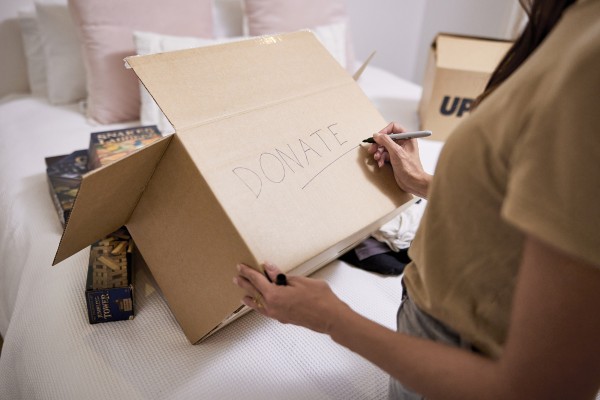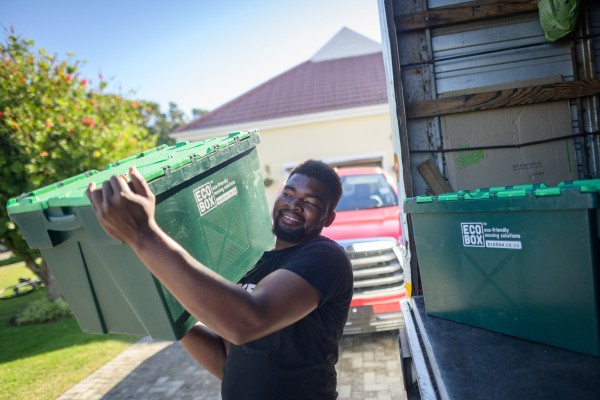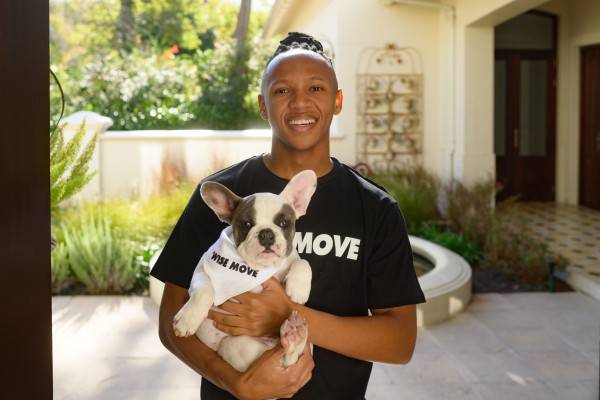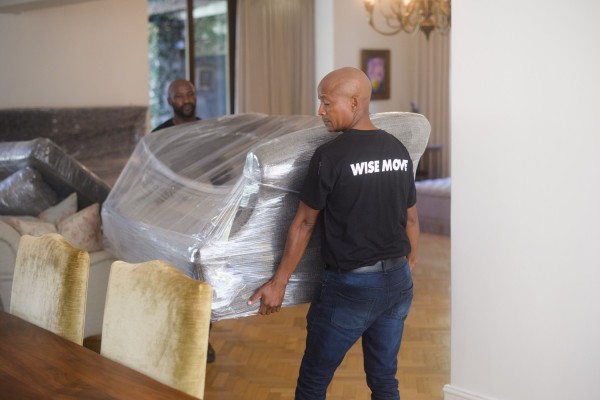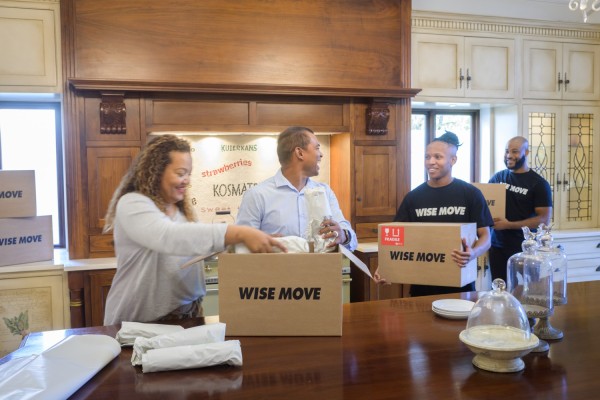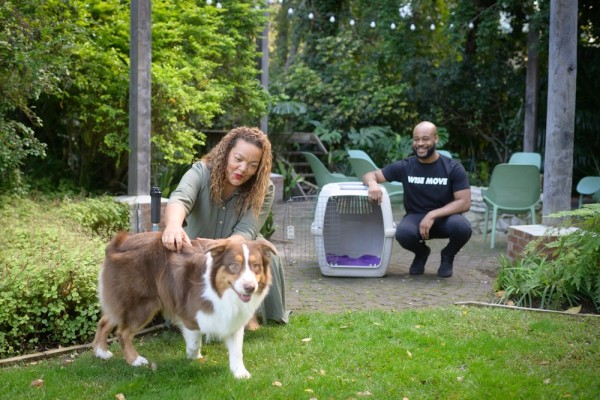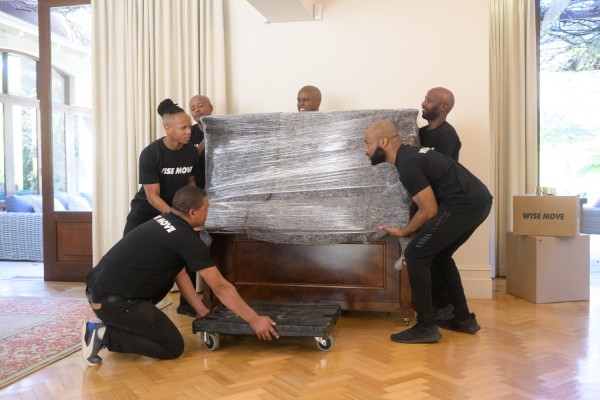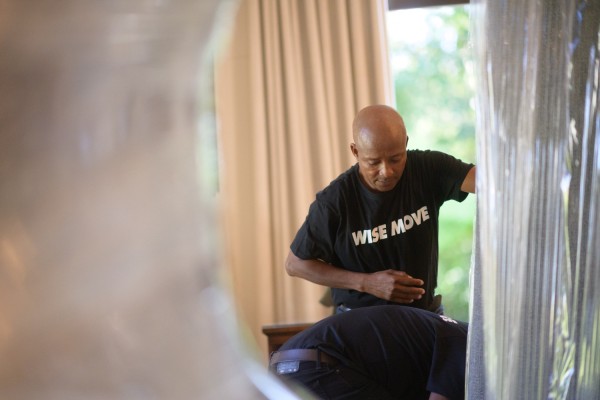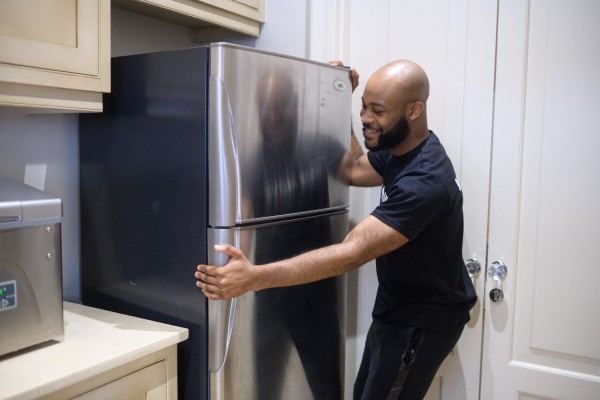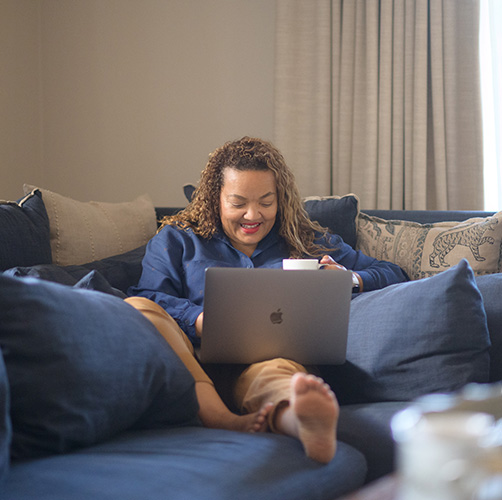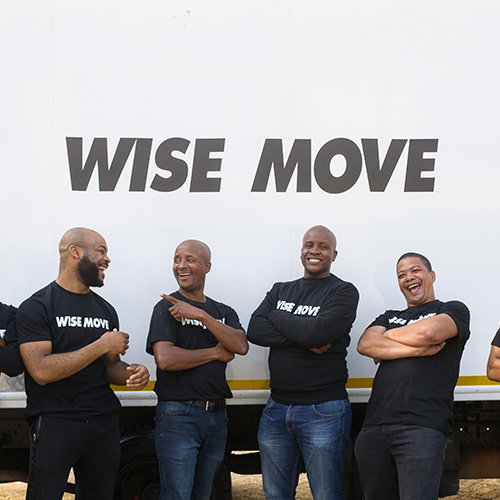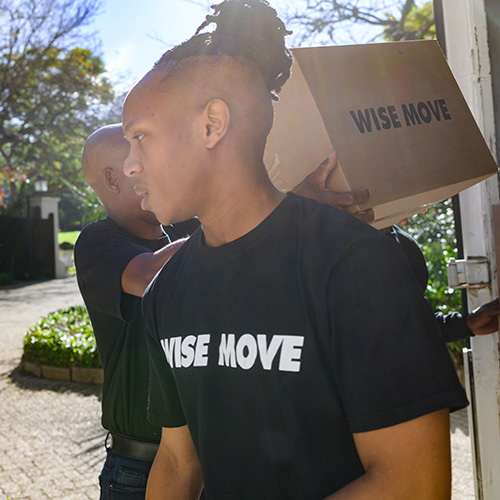Safe Transitions: Relocation Support for Domestic Violence Survivors in South Africa
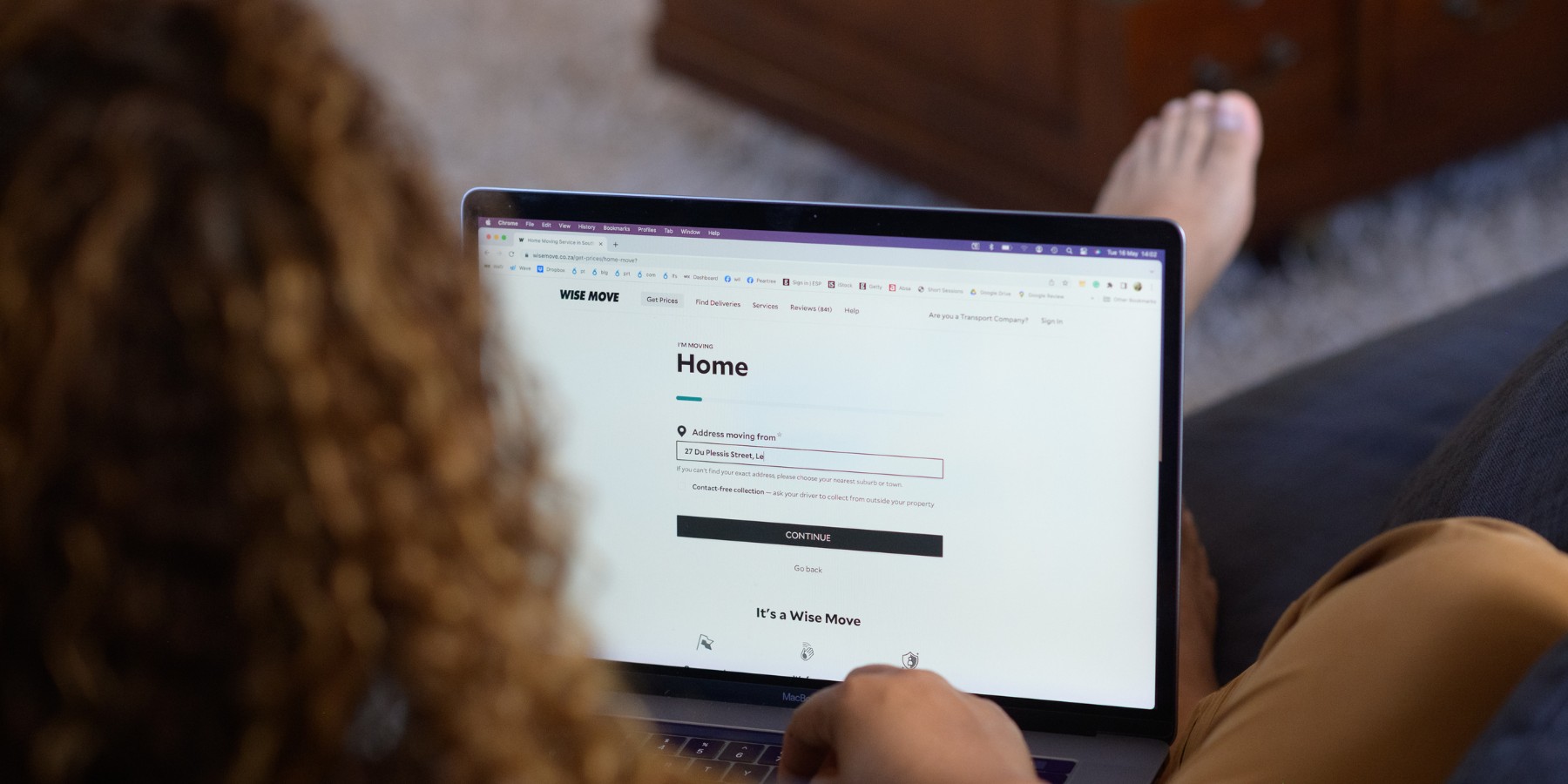
While South Africa is known for its beautiful beaches and breathtaking nature, it unfortunately also has incredibly high rates of domestic violence, particularly gender-based violence. Out of all cases of common assault in South Africa, 34% of cases are related to domestic violence.
Over the past few years, there have been louder and louder calls to bring an end to domestic violence in South Africa, with protests from the public putting pressure on government officials to take action. While this has led to further support for survivors of domestic violence, there is still a long way to go.
Moving houses may seem like a normal life activity for most people, but anyone who has faced domestic abuse knows it can be a dangerous and even life-threatening move. That's why if you're facing domestic abuse and looking for a way out, it’s essential to seek help and support. Thankfully, there are a few things you can do today to improve your safety.
If you’re a survivor of domestic violence, call South Africa’s gender-based violence hotline: 0800 150 150
First Steps To Ensure Your Safety During This Time
If you or someone you know has survived domestic violence and needs to get out of their current place to keep safe, especially with kids and in a really tense situation, there are some steps you can take to protect them and ensure a safer move. Hopefully, these steps help make the decision to leave easier, knowing they’ll be protected.
Step 1– Lean on your support system
While not everyone has the option, if you do have friends or family that you feel comfortable reaching out to, they may be able to provide support in this difficult time — whether it’s advice, planning, research, protection or even a temporary safe place to stay.
Step 2– Contact a lawyer and law enforcement
Navigating the legal system on your own may seem overwhelming and complicated. But you do have legal rights, and it’s important to know them to be aware of and enforce your legal protections. A lawyer can lay out the legal process and provide solutions to protect you and get you out of your situation. You can reach out to Lawyers Against Abuse to get free legal advice.
If you aren’t sure who to contact, the best first line of defence is the South African Police Service, who can point you in the right direction and provide emergency assistance if you are in immediate danger.
Step 3– Apply for a protection order
With the guidance of a lawyer or law enforcement, you may be able to apply for a protection order which can be used to prevent the recurrence of domestic violence or sexual harassment by outlining specific behaviors the alleged offender must avoid. If the protection order is violated, the perpetrator can be arrested. You can apply for a protection order at a police station.
Find out more about protection orders here.
Step 4– Seek help from an organisation or shelter
There are many trusted and experienced organisations that can provide the resources you need to ensure your safety and help you get out of your current situation. Keep reading to see who you can reach out to.
Step 5– Arrange a secure move with Wise Move
If you want to leave your situation by moving to a new house or apartment, but you're worried about your safety during the moving process, Wise Move can assist with a discrete and secure move. We'll go above and beyond to help you get out safely– Read more here.
Organisations that Support Survivors of Domestic Violence
One of the best things you can do as a survivor of domestic violence is to seek help through dedicated organisations. Here’s a list of South African services and organisations supporting domestic violence survivors.
For a full list of shelters around the country, visit https://www.shelters.org.za.
1. South African Police Service
The South Africa Police Service supports survivors of domestic violence by assisting them in finding medical attention, shelter and counselling.
Emergency phone number: 10111
2. People Opposed to Woman Abuse (POWA)
View this post on Instagram
POWA offers counselling services, available both via phone and in-person, along with temporary shelter and legal assistance to women who have experienced domestic violence.
Phone: +27 11 642 4345
Email: info@powa.co.za
3. Childline South Africa
Childline South Africa is a nonprofit organization that supports abused children and their families dealing with abuse through free counselling services. They address a range of issues, including physical and sexual abuse, substance abuse, behavioural challenges, and trafficking, offering legal advice.
Toll-free helpline: 116
Email: olcadmin@childlinesa.org.za
4. Child Welfare South Africa
Child Welfare South Africa concentrates on safeguarding children, providing child care, and fostering family development. Reports of neglect and child abuse are also accepted.
Phone: +27 74 080 8315
Email: info@childwelfareza.co.za
5. National Shelter Movement of South Africa
The National Shelter Movement (NSM) is a non-profit organization that comprises 78 shelters across all nine provinces of South Africa. To unify the efforts of sheltering women and children affected by gender-based violence in the country, the NSM works to engage in service provision, legislation and capacity building on GBV and sheltering of abused women and their children in South Africa.
National 24-hour toll-free shelter helpline: 0800 001 005
Phone: +27 82 057 8600; +27 82 058 2215; +27 72 230 7147
Email: infohelpline@womenscentre.co.za
6. TEARS Foundation
View this post on Instagram
The TEARS Foundation offers services for crisis intervention, advocacy, counselling and prevention education to individuals affected by domestic violence, sexual assault and child sexual abuse.
Free SMS helpline: *134*7355#
Phone: +27 (0)10 590 5920
Email: infor@tears.co.za
7. The Trauma Centre
The Trauma Centre provides trauma counselling and violence prevention services for people affected by domestic violence.
Phone: +27 (0) 21 465 7373
WhatsApp: +27 66 307 2073
Email: info@trauma.org.za
8. Thuthuzela Care Centres (TCCs)
With centres in every province, Thuthuzela Care Centres are comprehensive facilities crucial to South Africa’s anti-rape strategy, designed to minimise secondary victimisation and help prepare a case for successful prosecution. They also provide access to information regarding gender-based violence.
Phone: +27 (0) 12 845 6000
How Wise Move Can Help
Deciding to leave your situation and move out of your home can be a potentially dangerous situation, especially if there are children involved. That's why our team at Wise Move is dedicated to making the process as discreet as possible, with your safety a top priority. Through our collaboration with trusted professional movers, Wise Move aims to ensure your move is handled with discretion and sensitivity.
To support survivors of domestic violence, Wise Move’s services can include:
-
Discreet Transport: We utilise unmarked moving vehicles to prioritise your privacy.
-
Anonymous Quoting and Pricing: Quotes and pricing are handled anonymously, safeguarding your confidentiality.
-
Tailored Communication: We can adapt to your preferred mode of communication, be it via phone calls, WhatsApp, SMS or email.
-
Confidentiality Assurance: We’re committed to maintaining the confidentiality and non-disclosure of your information.
-
Flexible Timing: Our services are tailored to fit within your specific timeframe, ensuring convenience and sensitivity to your situation.
-
Discreet and Safe Operations: We uphold a commitment to discretion and safety by refraining from sending marketing materials to your residence or communicating with anyone other than the person requiring support.
Should you or someone you know be suffering from domestic violence in South Africa and require a change of residence to improve your situation, contact Wise Move at support@wisemove.co.za.
We handle each request personally and can arrange your move with the most trusted and low-cost movers. Additionally, we extend assistance to requests made through charities or shelters on your behalf.
Connect with us to discuss and customise our services according to your specific needs, ensuring a move that is safe, secure and stress-free. At Wise Move, your well-being is our top priority.
What do our customers say?



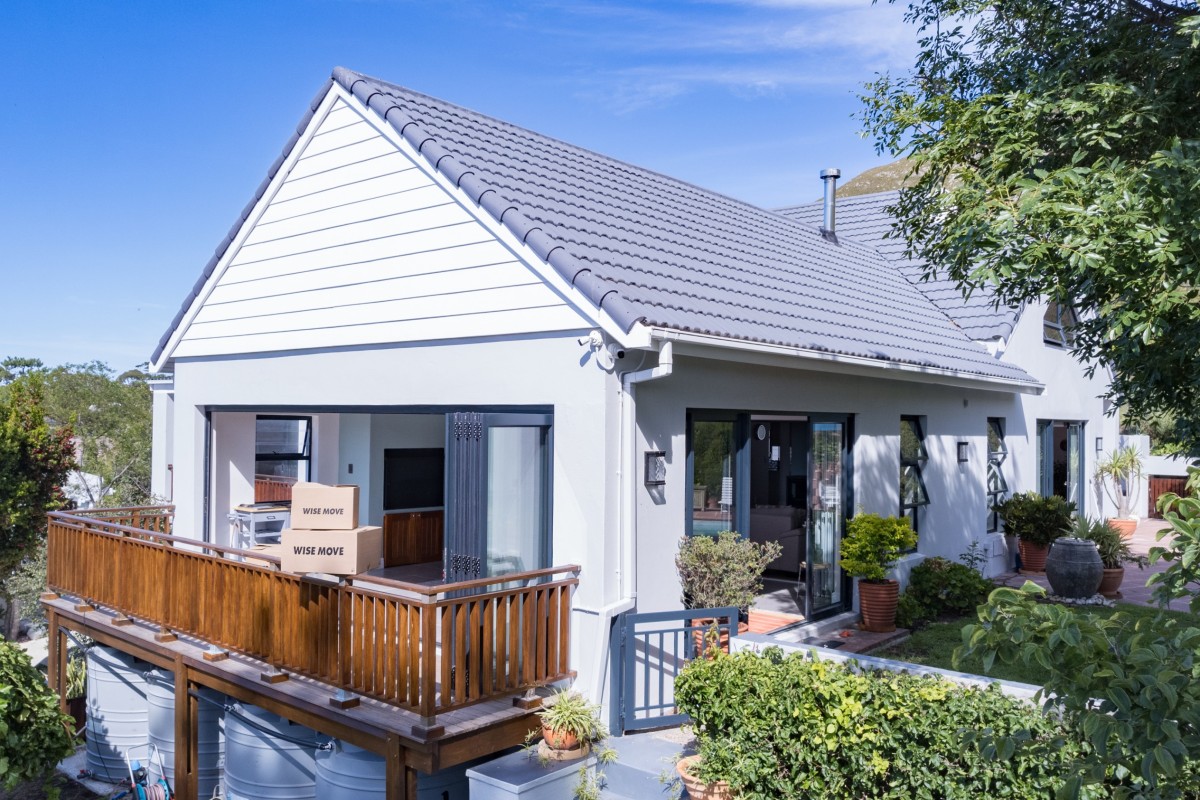
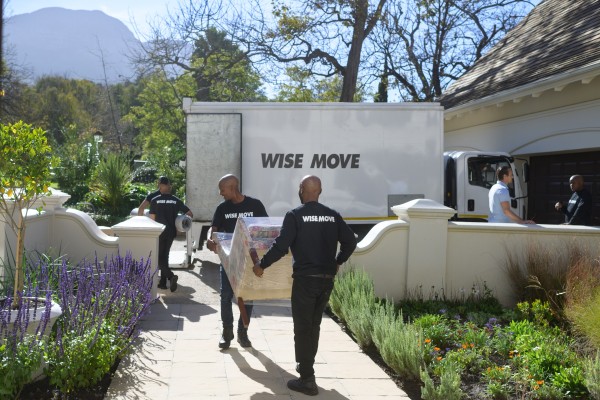
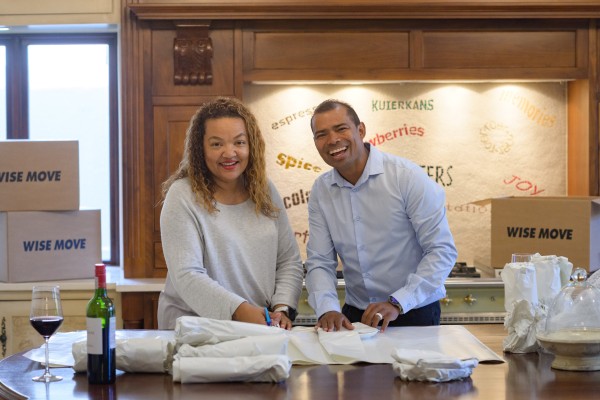

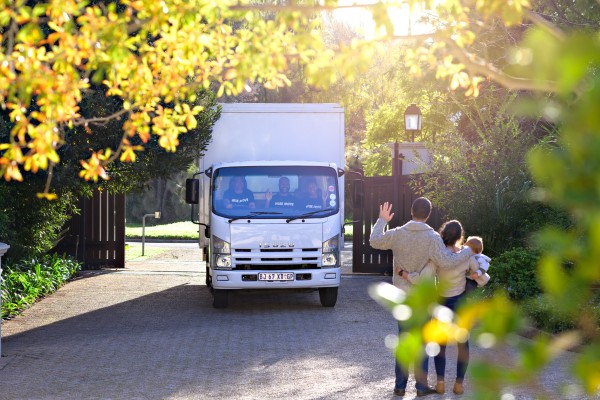
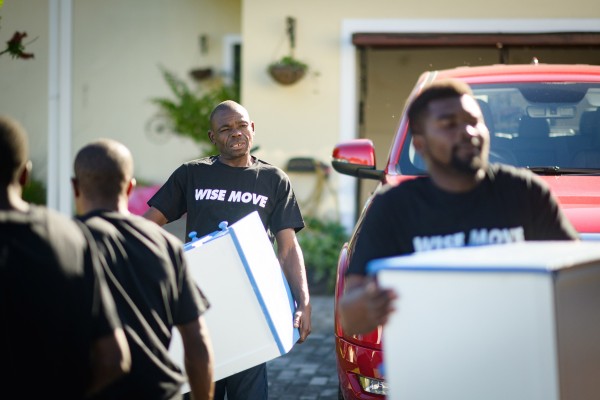
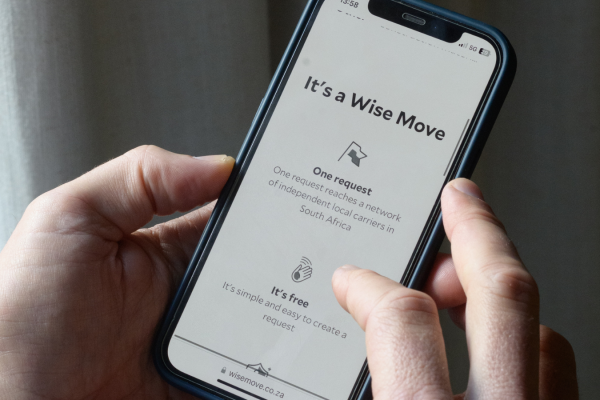
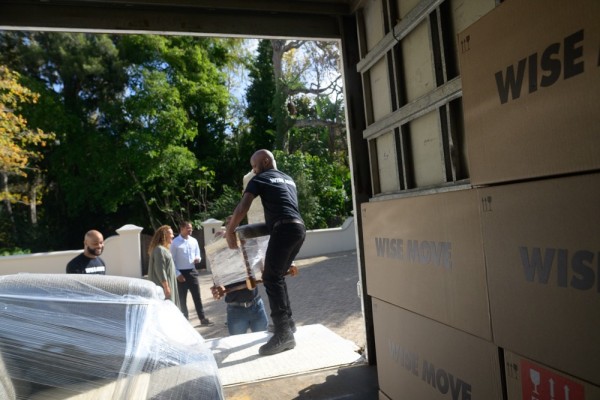
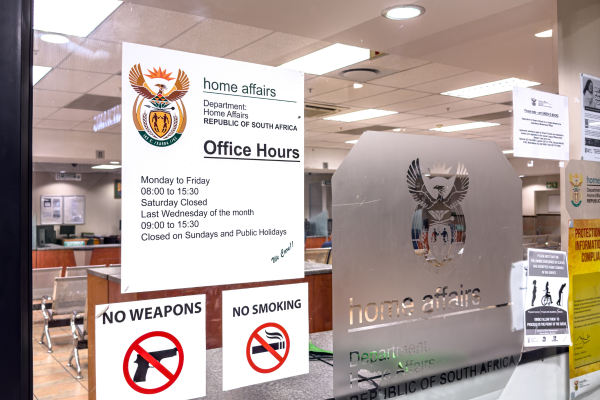

![How Many Moving Boxes Do You Need [Quick Guide] How Many Moving Boxes Do You Need [Quick Guide]](https://cdn.wisemove.co.za/image/blog/f402bbe3e47e09aa41a6d8370888b926.jpeg)
